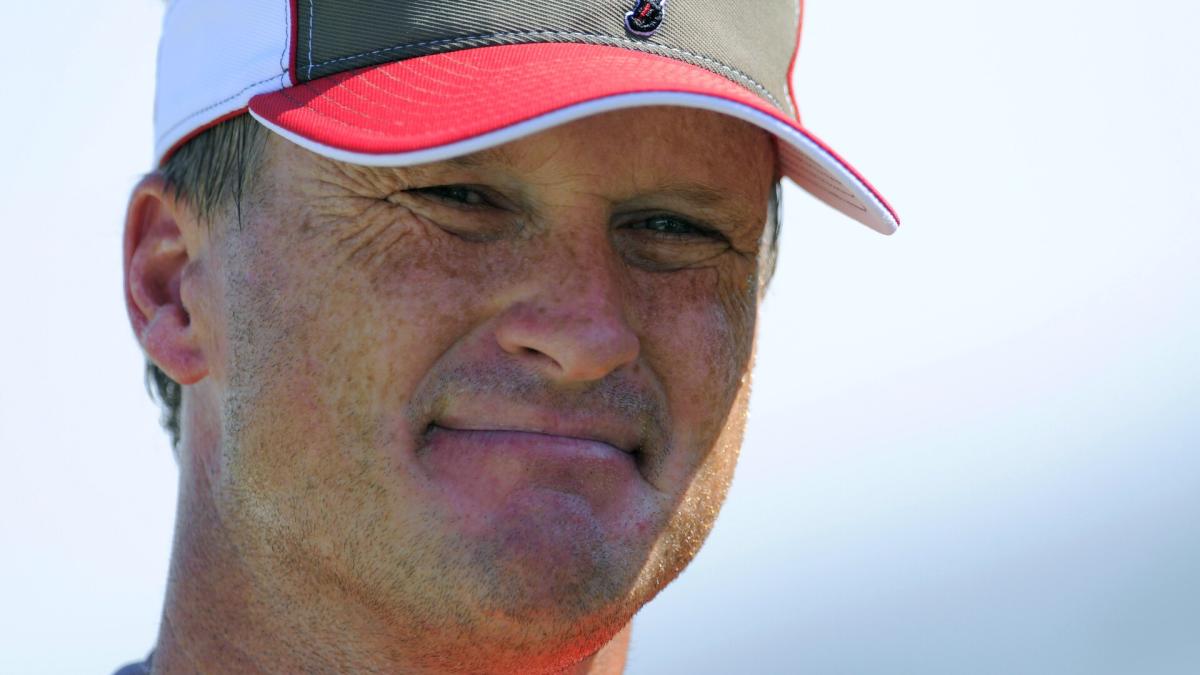Sports
Jon Gruden told Aaron Rodgers the Bucs would take him at No. 5 in 2005

Biographies often can be plodding efforts, especially in the early chapters. It’s the nature of the beast; they typically begin with mundane details about where grandparents grew up and how they met. (Although, for this one, the tales of Rodgers’s grandfather’s time as a bomber pilot and prisoner of war crack the usual mold.)
Sometimes, the stories regarding grandparents and parents shed real light on the inherent traits of the subject of the book. Sometimes, they don’t. Regardless, it’s not a true bio if it doesn’t delve into things that don’t exactly jump off the page.
The bio then tracks through the early years. The upbringing. How the person became who the person became. When he knew they could become what he became. Again, it can feel tedious at times. Again, that’s what make biographies what they are. It’s the whole story, driven by facts and recollections and crafted by the person who harvested them without any effort to jam the truth into connective tissue that runs from page to page, chapter to chapter.
Thus, like many biographies, Out of the Darkness: The Mystery of Aaron Rodgers takes a while to get going. The first 100 pages aren’t particularly mysterious, or compelling. He was part prodigy, part late-bloomer. Part overachiever, part underachiever. His path to pro football was unconventional not by choice but by circumstance. Anyone who follows pro football closely basically knew that.
Then comes the sixth chapter. The Plunge. For the first time in the week or so since getting a copy of the book, I ripped through a full segment in one sitting. Along the way, the 24 pages devoted to his failed effort to persuade the 49ers to make him the first pick in the draft and his ensuing slide out of the top 20 revealed plenty of intriguing details.
Here’s one. After a private, pre-draft workout that included a cameo appearance from receiver Jerry Rice, who ran routers for Rodgers, Buccaneers coach Jon Gruden told Rodgers this: “If you’re there at five, we’re taking you.”
It didn’t happen, obviously. Rodgers learned of that decision before the draft, when then-Bucs G.M. Bruce Allen told agent Mike Sullivan that Rodgers would not be the selection, Gruden’s promise notwithstanding.
In fact, Rodgers and his family knew the plunge was coming before it played out. The late Gil Brandt, who picked the players to invite to the draft based on the belief they’d go early, learned as the process grew closer that, of the six players in the green room, Rodgers would be the last man sitting — for a while.
Along the way, first-year Dolphins coach Nick Saban opted for a running back at No. 2; according to the book, Saban (who would pass on Drew Brees a year later and blame the doctors for it) loved Alex Smith but didn’t like Rodgers at pick No. 2. (Saban took running back Ronnie Brown.) The Browns opted not to pair Rodgers with fellow Jeff Tedford pupil Trent Dilfer. (Receiver Braylon Edwards was the pick.) The Bears, two years after using a first-round pick on Rex Grossman, went with running back Cedric Benson.
The Bucs picked running back Cadillac Williams, the Titans took cornerback Adam “Pacman” Jones, the Vikings (whose starting quarterback, Daunte Culpepper, had a franchise-quarterback performance in 2004 and who had just traded Randy Moss) opted for receiver Troy Williamson.
Rodgers kept plummeting. It got so bad at one point that the 49ers actually considered the possibility of picking him in round two and letting Smith and Rodgers fight it out for the starting job before trading the loser.
The Packers, obviously, ended it at No. 24. It wasn’t easy; the coaches wanted someone who would help the team win during the remaining years with Brett Favre, but G.M. Ted Thompson insisted on trusting the board.
The fans weren’t happy with the decision, either. Those assembled in the atrium at Lambeau Field for the event booed so loudly that team officials “could feel the walls of their draft room reverberate from the din.”
The decision also prompted a phone call from Favre, which began with a three-word question: “What the fuck?”
Although Favre and Rodgers never had much in common, they surely had the same feeling after the first 24 picks played out.



